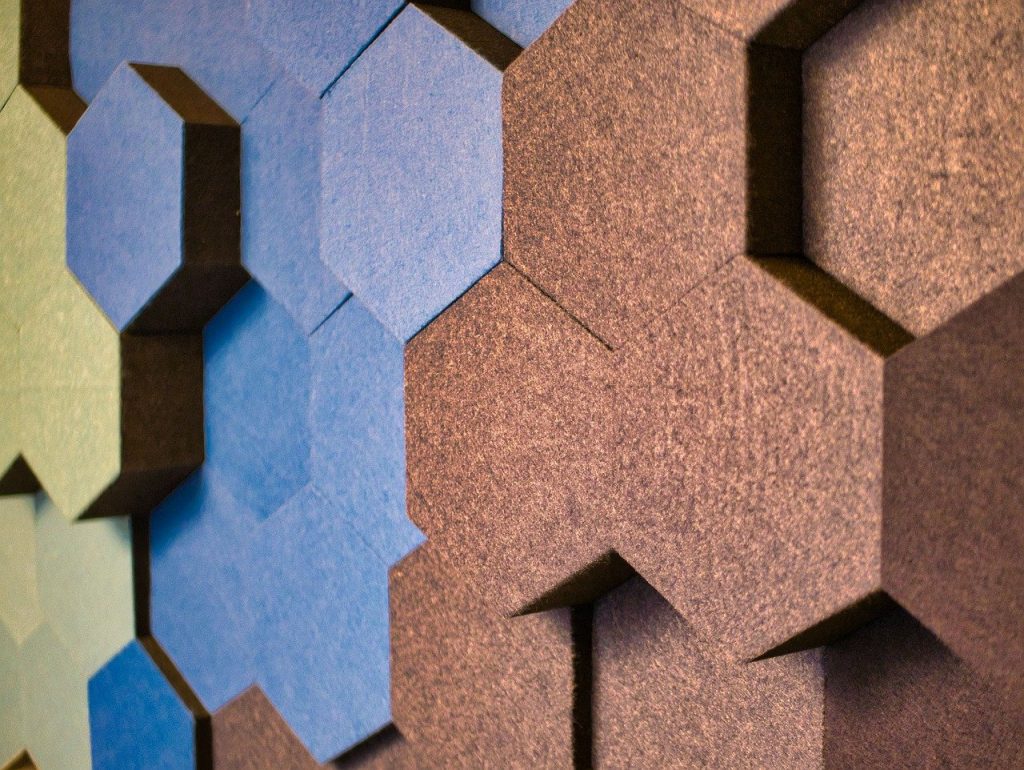Industrial soundproofing is vital not just for keeping sound out—but for keeping it in, too. If you work in a noisy environment, proper soundproofing is essential for keeping neighbourhood complaints at bay.
On the other hand, soundproofing can help you achieve a cleaner, crisper noise quality if you work in audio production or multimedia.
But there’s more than just one type of soundproofing. The kind you choose will depend on your industry, the dimensions of your building, and your business’s specific needs.
Here’s a quick run-down of the best soundproofing materials available today.
Table of Contents
But first, what is soundproofing?
Soundproofing refers to a range of products across residential, commercial, and industrial settings to reduce noise transmission and improve sound quality.
There are several distinct types of soundproofing materials out there. Some common options include:
- Acoustic foam
- Acoustic insulation
- Soundproof panelling or boards
- Acoustic fabric
- Acoustic coating, such as Mass Loaded Vinyl or MLV
- Felt or cork floor underlays
Why do I need soundproofing?
To choose the right soundproofing materials for your business, you’ll need to think about why you need soundproofing.
For example, if you work in construction, you might want to stop your noisy machinery from bothering passers-by.
Or, if you work in an office, you might want to improve noise quality and transfer within your meeting rooms.
Sound-absorbing options are the best choice for studios and offices, while acoustic insulation is the way to go for industrial settings.
Types of sound-absorbing material
Instead of reflecting noise, sound-absorbing materials do as their name suggests—absorb soundwaves. Noise absorption softens reverberations and echoes, improving sound quality.
Here are some of the best options for sound absorption:
- Acoustic foam—an excellent option for medium-sized office spaces, studios, or meeting rooms.
- Acoustic panelling—attractive, wood-framed panelling is a smart choice if you’re concerned about aesthetics.
- Acoustic curtains—blackout curtains are useful for reducing sound as well as light. They’re a versatile sound-dampener for offices and small studios.
Types of sound-dampening material
Sound-dampening materials don’t prevent noise transfer entirely, but reduce its amplitude. Self-adhesive dampening film, Mass Loaded Vinyl (MLV), sound deadening spray, and floor underlayment all offer sound-dampening properties.
- MLV—great for noise-proofing machinery or appliances, thanks to its flexibility.
- Floor underlayment—perfect for reducing noise transfer between floors.
- Sound-deadening spray—a spray-on form of MLV, great for soundproofing hard-to-reach areas.
- Self-adhesive dampening film—thickens glass to reduce sound transfer through windows.
Types of soundproof insulation
Many industrial or office buildings use soundproof insulation to keep noises from travelling between rooms or floors. Most soundproof insulation is made from either fibreglass or mineral wool.
- Mineral wool boards—boasting fire-resistance, thermal properties, and quality acoustic insulation, mineral wool insulation is a great all-in-one choice.
- Fibreglass—soundproof fibreglass boards are suitable for reducing high-frequency noise in commercial buildings, studios, and theatres.
Conclusion
Today’s business owners are spoiled for choice when it comes to soundproofing. Options include soundproof insulation, sound-dampening materials, and sound-absorbing materials. Soundproof insulation is the best choice for large offices or industrial spaces that produce excessive noise. Alternatively, sound-dampening and sound-absorbing materials are appropriate for studios, boardrooms, and small office environments.
Alex is fascinated with “understanding” people. It’s actually what drives everything he does. He believes in a thoughtful exploration of how you shape your thoughts, experience of the world.

